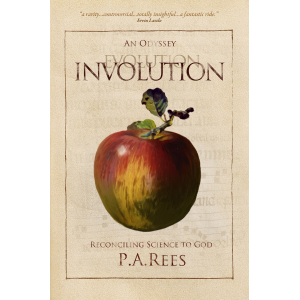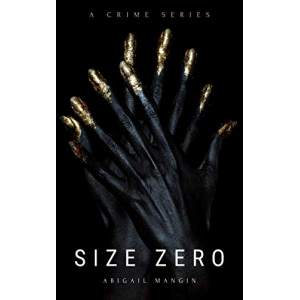- Author
- Book
- Story behind the book
- Media Links
- Reviews

Rick Rodgers
About
Rick Rodgers, CFP® is an author, keynote speaker, wealth manager and President of Rodgers & Associates, “The Retirement Specialists”, in Lancaster, PA. Rick’s articles on retirement planning have appeared in Wealth Manager magazine, CPA Magazine and Physician’s Money Digest. He also writes a column for Lancaster CountyMagazine titled “It’s Your Money”. Rick has appeared numerous times on WGAL TV to discuss financial issues in the news. He was called upon by WITF radio for a special appearance on Smart Talk in October 2008 to discuss the financial crisis as it was unfolding. He has been quoted in the New York Times, Money Magazine, Investment News, Smart Money magazine, Central Pennsylvania Business Journal, HarrisburgPatriot News and Lancaster Newspapers.
Rick is a 25 year industry veteran, beginning his career with Shearson American Express in 1984. He founded Rodgers & Associates in 1996 to help families create and conserve their wealth in preparation for worry-free and dignified retirements. With the commitment to help his clients plan for the future while living in the present, Rick offers an individually focused approach to helping clients reach their retirement goals.
In July 2009 Wealth Manager Magazine named Rodgers & Associates as one of the country’s top wealth managers for the seventh year in a row. The annual ranking of Top Wealth Managers is based on the asset value of each participating wealth manager's average client relationship as of December 31, 2008 and is calculated by dividing the total client assets under management by the total number of client relationships.
Rick was a 1987 graduate of Leadership Lancaster and is a current member of the prestigious Financial Planning Association. Rodgers & Associates is a corporate member of NAPFA, The National Association of Personal Financial Advisers. A committed Christian, Rick served as a field representative for the North East to Larry Burkett’s organization Christian Financial Concepts from 1990 to 1995. Rick currently serves on the Board of Directors for LancasterHistory.org.

Involution-An Odyssey Reconciling Science to God
Description
<p>“<em>We are not human beings having a spiritual experience; we are spiritual beings having a human experience.”(</em>Teilhard de Chardin<em>)</em></p><p><span style="line-height:1.6em;"><em>Involution-An Odyssey Reconciling Science to God </em> is as layered as a French cassoulet, as diverting, satisfying and as rich. Each reader will spoon this book differently. On the surface it seems to be a simple and light-hearted poetic journey through the history of Western thought, dominantly scientific, but enriched with painting and music. Beneath that surface is the sauce of a new evolutionary idea, involution; the informing of all matter by consciousness, encoded and communicating throughout the natural world. A book about the cathedral of consciousness could have used any language to paint it, but science is perhaps most in need of new vision, and its chronology is already familiar.</span></p><p><span style="line-height:1.6em;">The author offers a bold alternative vision of both science and creation: she suggests that science has been incrementally the recovery of memory, the memory of evolution/involution</span><em style="line-height:1.6em;">.</em></p><p>“<em> Involution proposes that humans carry within them the history of the universe, which is (re)discovered by the individual genius when the time is ripe. All is stored within our DNA and awaits revelation. Such piecemeal revelations set our finite lives in an eternal chain of co-creation and these new leaps of discovery are compared to mystical experience</em>” (From a reviewer)</p><p>Each unique contributor served the collective and universal return to holism and unity. Thus the geniuses of the scientific journey, like the spiritual visionaries alongside, have threaded the rosary of science with the beads of inspiration, and through them returned Man to his spiritual nature and origin.</p><p><span style="line-height:1.6em;">The separation between experience and the rational intellect of science has, by modelling memory as theory, separated its understanding from the consciousness of all, and perceives mind and matter as separate, God and Man as distinct. This work is a dance towards their re-unification: Saints and scientists break the same bread.</span></p><p><span style="line-height:1.6em;">All of time and all the disciplines of science are needed for the evidence. Through swift (and sometimes sparring) Cantos of dialogue between Reason and Soul, Philippa Rees takes the reader on a monumental journey through the history of everything – with the evolution of man as one side of the coin and involution the other. The poetic narrative is augmented by learned and extensive footnotes offering background knowledge which in themselves are fascinating. In effect there are two books, offering a right and left brain approach. The twin spirals of a DNA shaped book intertwine external and internal and find, between them, one journey, Man’s recovery of Himself., and (hopefully) the Creation’s recovery of a nobler Man.</span></p><p><span style="line-height:1.6em;">From the same review “</span><em style="line-height:1.6em;">The reader who finishes the book will not be the same as the one who began it. New ideas will expand the mind but more profoundly, the deep, moving power of the verse will affect the heart.</em></p><p><em>(Marianne Rankin: Director of Communications, Alister Hardy Trust)</em></p><p> </p>
Story Behind The Book
Media Links
Reviews
<p style="margin:0in 0in 0pt;" class="MsoNormal"><span style="font-family:'Times New Roman';">July 18, 2009</span></p> <p style="margin:0in 0in 0pt;" class="MsoNormal"><strong><em><span style="font-size:14pt;"></span></em></strong></p> <p><span style="font-family:'Times New Roman';"></span> </p> <p style="margin:0in 0in 0pt;" class="MsoNormal"><a></a><a><span><strong><em><span style="font-size:14pt;"><font color="#000000"><span style="font-family:'Times New Roman';">The New Three-Legged Stool:</span></font></span></em></strong></span></a></p> <p></p> <p style="margin:0in 0in 0pt;" class="MsoNormal"><span><span><strong><em><span style="font-size:14pt;"><span style="font-family:'Times New Roman';">A Tax Efficient Approach to Retirement Planning</span></span></em></strong></span></span></p> <p></p> <p style="margin:0in 0in 0pt;" class="MsoNormal"><span><span><span style="font-family:'Times New Roman';">Rick Rodgers</span></span></span></p> <p style="margin:0in 0in 0pt;" class="MsoNormal"><span><span><span style="font-family:'Times New Roman';">Marketplace Books (2009)</span></span></span></p> <p style="margin:0in 0in 0pt;" class="MsoNormal"><span><span><font size="3"><span style="font-family:'Times New Roman';">ISBN:<span> </span><span style="color:#000000;">9781592803637</span></span></font></span></span></p> <p></p> <p style="margin:0in 0in 0pt;" class="MsoNormal"><span><span><span style="color:#000000;"></span></span></span></p> <p><span><span><font size="3"><span style="font-family:'Times New Roman';"><strong><span style="color:#000000;">*****</span></strong><span style="color:#000000;"> (5 stars) <a><font color="#000000">New Book Teaches Wise Retirement Planning and How to Pay as Few Taxes As Possible</font></a></span></span></font></span></span></p> <p></p> <p style="margin:0in 0in 0pt;" class="MsoNormal"><span><span></span></span></p> <p><span><span><span style="font-family:'Times New Roman';">How should you invest your money? Should you contribute to your company’s 401k, put the money in a Roth IRA, or just buy mutual funds? Can you expect to receive any money from Social Security when you retire? How much of your retirement money will the IRS take in taxes? These are the important questions Rick Rodgers expertly answers in <em>The New Three-Legged Stool </em>with clear explanations, followed by practical, concise instructions to make the most with the money you have. This tax-efficient approach to retirement planning is one that readers will refer to again and again.</span></span></span></p> <p style="margin:0in 0in 0pt;" class="MsoNormal"><span><span></span></span></p> <p><span><span><font size="3"><span style="font-family:'Times New Roman';font-size:13px;"><em>The New Three-Legged Stool</em> refers to the three types of investments you should have, and balance properly to support your retirement. These three investments are Tax-Deferred Savings, After-Tax Savings, and Tax-Free Savings. Rodgers takes the reader through an explanation of why each of these types of savings is important, how to invest in it, and how to withdraw the money to achieve the maximum benefit at the time of retirement. Tax-Deferred Savings include company 401(k) plans and IRAs (including SEP and SIMPLE plans). After-Tax Savings include mutual funds, bank and brokerage accounts, and investment real estate—anything that isn’t technically a retirement account. Tax-Free Savings are Roth IRA’s and Roth 401(k)s that have no immediate tax benefits. Rodgers devotes considerable time to explaining the benefits and disadvantages of these investments, and why a healthy balance must be achieved among all three.</span></font></span></span></p> <p style="margin:0in 0in 0pt;" class="MsoNormal"><span><span></span></span></p> <p><span><span><span style="font-family:'Times New Roman';">One of <em>The New Three-Legged Stool</em>’s<em></em>greatest strengths is the examples it offers in the form of various retirees’ stories. The book opens with “The Un-Funniest Story Ever Told” about a successful businessman with an estate worth over $4.4 million. Because the man never consulted a retirement planner or made an effort to do estate planning, when he passed away, his children ended up paying 85.8% of their father’s retirement account in taxes! Many more examples of retirees’ experiences are illustrated in the book, often comparing two people’s strategies to see which ends up being more beneficial.</span></span></span></p> <p style="margin:0in 0in 0pt;" class="MsoNormal"><span><span></span></span></p> <p><span><span><span style="font-family:'Times New Roman';">Besides telling readers how to manage their money according to the current IRS tax laws, Rodgers provides an explanation of how the IRS functions, why it tries to get as much money as possible, based on the U.S. Government’s failure to handle its money properly, and the origins of Social Security, as well as the approaching crisis that by 2017 more money will be withdrawn than is annually contributed to Social Security.</span></span></span></p> <p style="margin:0in 0in 0pt;" class="MsoNormal"><span><span></span></span></p> <p><span><span><span style="font-family:'Times New Roman';">Rodgers closes with advice on finding a good retirement advisor and how to do estate planning, including writing a will or setting up a trust to protect your hard-earned money so you will have enough for the remainder of your life and money left over for your heirs. Several useful charts accompany the discussions, illustrating how much money a person will need to live on, depending on current income, age of retirement, expected longevity, and when a person chooses or is required to draw income from various retirement accounts, including Social Security.</span></span></span></p> <p style="margin:0in 0in 0pt;" class="MsoNormal"><span><span></span></span></p> <p><span><span><span style="font-family:'Times New Roman';">Rick Rodgers has produced a much-needed, well-organized, friendly to read, and refreshingly short book (202 pages) that will give readers much to think about and plan for, and which they will return to time and time again. I hope Rodgers will update the book as time goes by so it is current and future readers can equally benefit from it as tax laws change.</span></span></span></p> <p style="margin:0in 0in 0pt;" class="MsoNormal"><span><span></span></span></p> <p><span><span><span style="font-family:'Times New Roman';">Rick Rodgers is well qualified to provide advice on tax-efficient retirement planning. He is an industry veteran of twenty-five years, has published numerous articles on investing in such publications as <em>Wealth Manager</em>, been a guest on TV and radio shows, and been quoted in<em> Investment News</em> and <em>Smart Money</em> magazine. In 1996, he founded Rodgers & Associates “to help families create and conserve their wealth in preparation for worry-free and dignified retirements.” For more information about Rick Rodgers and <em>The New Three-Legged Stool</em>, or to contact him for personal investment assistance, visit </span></span></span><a href="http://www.thenewthreeleggedstool.com/"><font color="#800080"><font size="3"><span style="font-family:'Times New Roman';"><span><span>www.TheNewThreeLeggedStool.com</span></span><span><span></span></span></span></font></font></a><span><span><span style="font-family:'Times New Roman';">.</span></span></span></p> <p style="margin:0in 0in 0pt;" class="MsoNormal"><span><span></span></span></p> <p style="font-family:'Times New Roman';font-size:12px;"><span><span><span style="color:#000000;"><font size="3"><span style="font-family:'Times New Roman';"><span> </span>— Tyler R. Tichelaar, Ph.D., author of the award-winning <em>Narrow Lives</em></span></font></span></span></span></p><span></span><span></span> <p style="margin:0in 0in 0pt;" class="MsoNormal"></p> <p><span style="font-family:'Times New Roman';"></span> </p>





